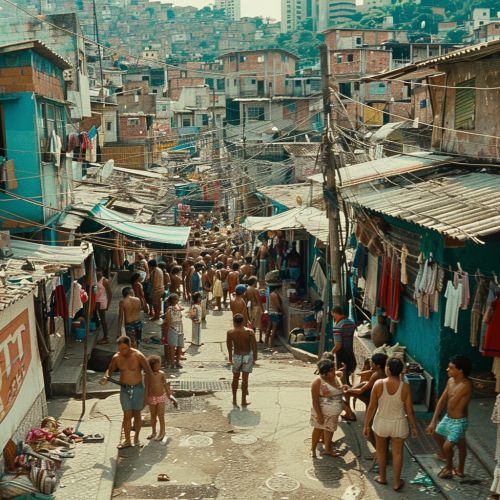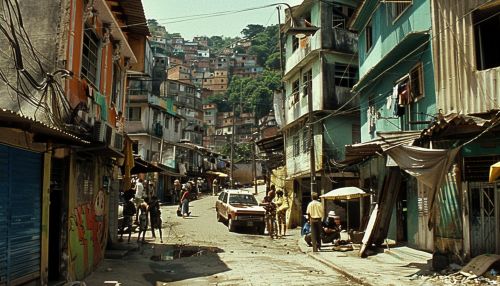City of God (2002 film)
Plot Summary
City of God (Cidade de Deus) is a 2002 Brazilian crime film directed by Fernando Meirelles and co-directed by Kátia Lund. The screenplay, written by Bráulio Mantovani, is based on the 1997 novel of the same name by Paulo Lins. The story is set in the Cidade de Deus suburb of Rio de Janeiro and spans the late 1960s to the early 1980s. It follows the lives of several characters, primarily focusing on two boys who take different paths: Rocket (Buscapé), who becomes a photographer, and Li'l Zé (Zé Pequeno), who becomes a drug dealer.
Development and Production
The film's development began when Fernando Meirelles read the novel by Paulo Lins. Meirelles was captivated by the raw and vivid portrayal of life in the favelas and sought to adapt it into a film. The production team conducted extensive research, including interviews with residents and former gang members, to ensure an authentic representation of the environment and its inhabitants.
Casting
The casting process was unique in that many of the actors were non-professionals from the favelas themselves. This decision was made to enhance the film's authenticity. Alexandre Rodrigues was cast as Rocket, while Leandro Firmino played the role of Li'l Zé. The casting directors conducted workshops and auditions in the favelas to find suitable actors.
Cinematography
The cinematography of City of God is one of its most praised aspects. César Charlone, the director of photography, employed a dynamic and gritty style to capture the chaotic and vibrant atmosphere of the favelas. Handheld cameras and natural lighting were frequently used to create a sense of realism. The film's visual style is characterized by rapid editing, which reflects the frenetic pace of life in the favelas.
Themes
City of God explores several themes, including poverty, violence, and the impact of socioeconomic conditions on individuals and communities. The film delves into the cycle of violence that perpetuates itself in the favelas, where young boys often turn to crime as a means of survival. It also examines the role of fate and choice in the characters' lives, contrasting Rocket's pursuit of a better life through photography with Li'l Zé's descent into criminality.
Reception
Upon its release, City of God received widespread critical acclaim. It was praised for its powerful storytelling, compelling performances, and innovative cinematography. The film was nominated for four Academy Awards, including Best Director, Best Adapted Screenplay, Best Cinematography, and Best Film Editing. It also won numerous awards at international film festivals.
Cultural Impact
City of God had a significant cultural impact, both in Brazil and internationally. It brought global attention to the issues faced by residents of the favelas and sparked discussions about poverty and violence in urban areas. The film also influenced other filmmakers and contributed to the rise of Brazilian cinema on the world stage.
Legacy
The legacy of City of God extends beyond its critical and commercial success. It has been studied in academic settings for its portrayal of social issues and its innovative filmmaking techniques. The film's impact on Brazilian society is also notable, as it has inspired social programs and initiatives aimed at improving conditions in the favelas.


